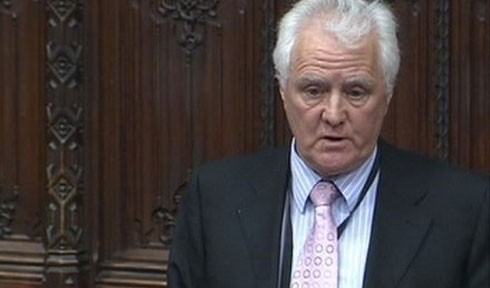Last week, I attended an excellent workshop for small and medium-sized enterprises, aimed at promoting the various ways in which SMEs can engage with Parliament. The workshop was organised by the Parliamentary Outreach Service, a team within Parliament which spreads awareness of the work, processes and relevance of the institution of Parliament, encouraging greater engagement between the public and the House of Commons and House of Lords.
I cannot understate the importance of SMEs to local communities. For 23 years, I represented Dumbarton and West Dunbartonshire, a former industrial area. My constituency faced significant challenges in overcoming unemployment and its social and economic consequences. However, I experienced first-hand how a community can be regenerated by investing to create the right conditions for small businesses to start up and thrive.
As a community advocate and leader, a Member of Parliament has huge scope to help bring this about. I chaired two regeneration companies in my constituency. I helped to set up one of these, Strathleven Regeneration Company, after a major local employer closed down; it is now estimated to create 1,900 new jobs by 2019 and add over £500 million to local GVA. The other, Clydebank Re-built, has done an enormous amount to encourage local enterprise, for example by providing training, improving infrastructure and building premises for SMEs.
I also spearheaded the campaign to create a National Park for Loch Lomond, giving a boost to local tourism businesses. An MP has the ability to give a voice to the business community in the constituency, helping to bring about this kind of change.
At Westminster, I was able to raise the problems and concerns that were brought to me by business owners in my constituency. That was particularly important during the financial and economic crisis, when my contact with SMEs in my constituency had a direct impact on my work as Chairman of the Treasury Select Committee, particularly on the issue of bank lending and finance.
So it is vital that there is a dialogue between small and medium-sized businesses and local Members of Parliament. One of the questions raised at the session asked who SMEs should approach about local issues. Your constituency MP is an important point of contact; he or she should be willing to help with any local issues. Many people are surprised to learn that, in general, MPs will respond to all correspondence they receive from people and from businesses in their constituency.
Businesses have an extra opportunity to influence Parliament through the House of Lords, which focuses on detailed scrutiny of legislation. Parliamentary procedures typically give the Lords longer to scrutinise a Bill than the Commons, and there is more discussion by the whole House rather than on smaller committees. A Peer may therefore be able to ensure that concerns raised by an SME are considered properly in the legislative process.
Another question raised at the outreach session asked whether SMEs were properly understood by Parliamentarians. It may well be the case that there is more to do to foment this understanding amongst MPs and Peers.
For that reason, rather than waiting for urgent issues to arise, it is important for contact between Parliamentarians and SMEs to begin early and to continue on an ongoing basis.
During my time as MP for Dumbarton and West Dunbartonshire, I held business seminars and forums roughly twice a year. They were an excellent way of allowing me to meet businesspeople in my constituency and to get a sense of the issues that were affecting them. They also allowed me to tell businesspeople about my work and how they could engage with it. I would certainly recommend this approach to other MPs and businesses.
Parliamentarians can play a major role in influencing conditions for local SMEs, through local campaigns as well as by influencing legislation at Westminster. It is therefore vital that SMEs engage with them, and I have no doubt they will find a willing ear.
John McFall was the Member of Parliament for Dumbarton and the West Dunbartonshire between 11 June 1987 and 12 April 2010. On 6 July 2010 he was made Life Peer and took a seat in the House of Lords as Lord McFall of Alcluith.
For more information about the Parliamentary Outreach Service and the free training that it provides, visit www.parliament.uk/outreach


